Investigating Digital Sovereignty: Theories, Methods, and Empirical Challenges – Workshop Held at the University of Salerno
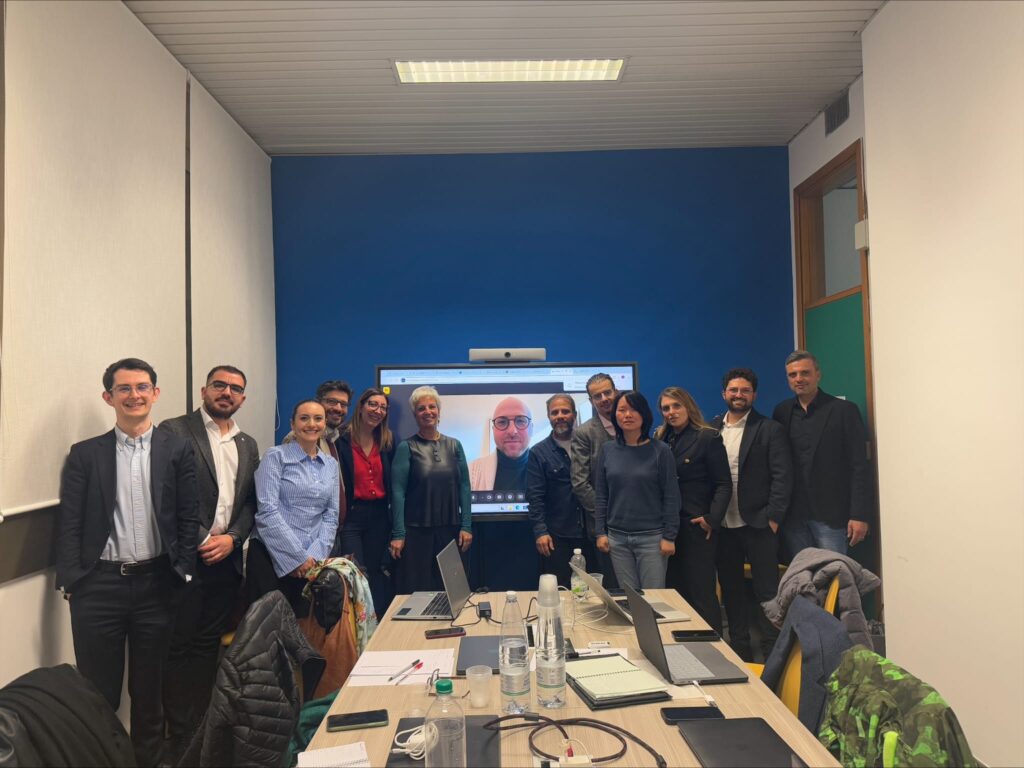
On 14-15 November 2024, the University of Salerno hosted the workshop titled “Investigating Digital Sovereignty: Theories, Methods, and Empirical Challenges.” The event was organized under the PRIN project “Digital Sovereignty in Comparative Perspective: State Authority, Corporate Power, and Fundamental Rights in Cyberspace,” jointly led by the University of Salerno and the University of Padua.
The Rector of the University of Salerno Prof. Vincenzo Loia opened the 2-day workshop and welcomed participants, researchers and students: “We, as an University, support this kind of research on timely and crucial issues such as digital sovereignty, cybersecurity and digital rights protection”.
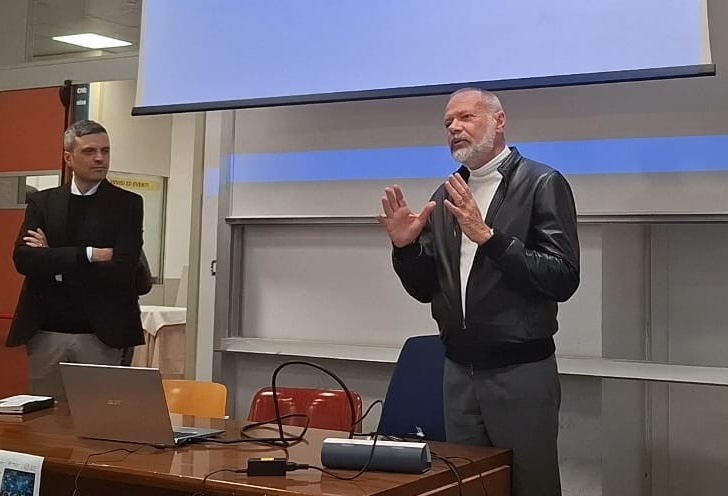
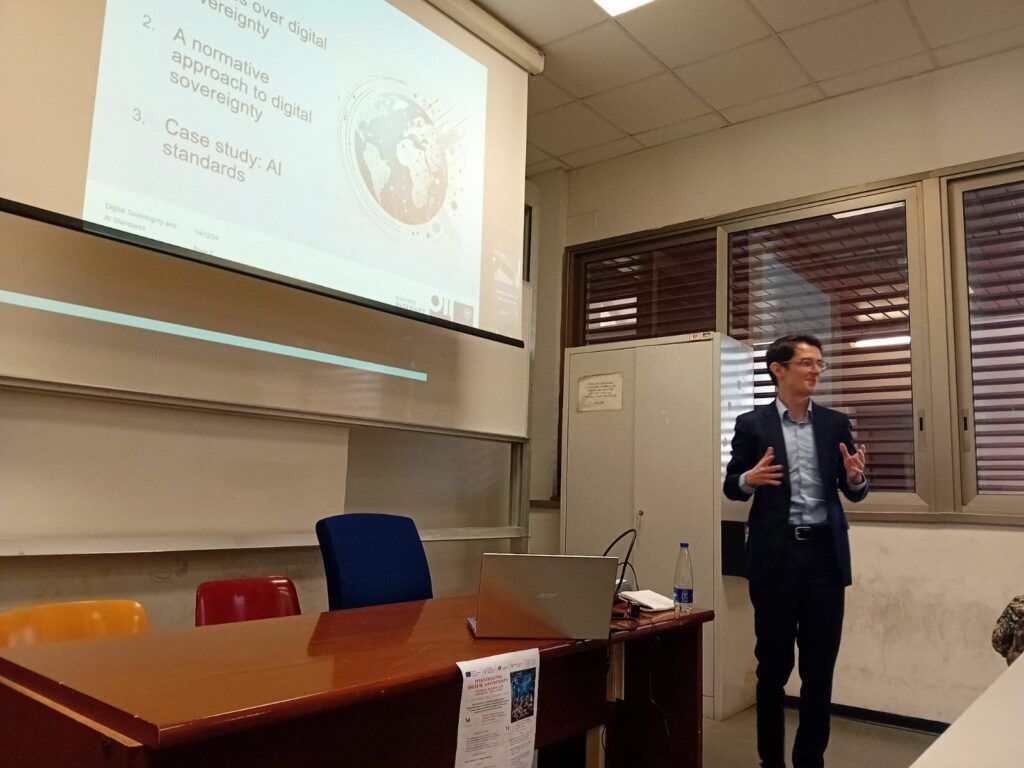
The workshop brought together researchers involved in the project to discuss digital sovereignty, a crucial issue in cyberspace governance and digital policy development. The opening session featured a keynote speech by Huw Roberts from the University of Oxford, who examined digital sovereignty and the ongoing global competition to establish AI standards. Mauro Santaniello, Principal Investigator of the PRIN project, followed with an analytical framework for conceptualizing digital sovereignty. Other presentations included Stanislav Budnitsky and Claudia Padovani’s exploration of decolonial perspectives on digital sovereignty, and Armando Antonio Ferrara’s analysis of the concept within the microprocessor value chain.
The second day showcased a range of international case studies, including Natascia Tatiana Fera’s comparative analysis of digital sovereignty in German and French media and Grace X. Yang’s examination of the U.S.-China cyber sovereignty contestation. Notable contributions included Chiara Spiniello’s exploration of digital constitutionalism in Southern Europe and Claudia Padovani and Enes Abanoz’s research on Indigenous data sovereignty and Daniele Ruggiu’s study on the legacy of contact tracing apps post-pandemic. Finally, Serena Fraiese investigated the intersection of Islamic political thought and digital sovereignty in the MENA region. Nicola Palladino presented the EU’s strategy on artificial intelligence, highlighting efforts to build competitive digital sovereignty, while Gerardo Ferrentino discussed digital sovereignty in relation to cybersecurity policy.
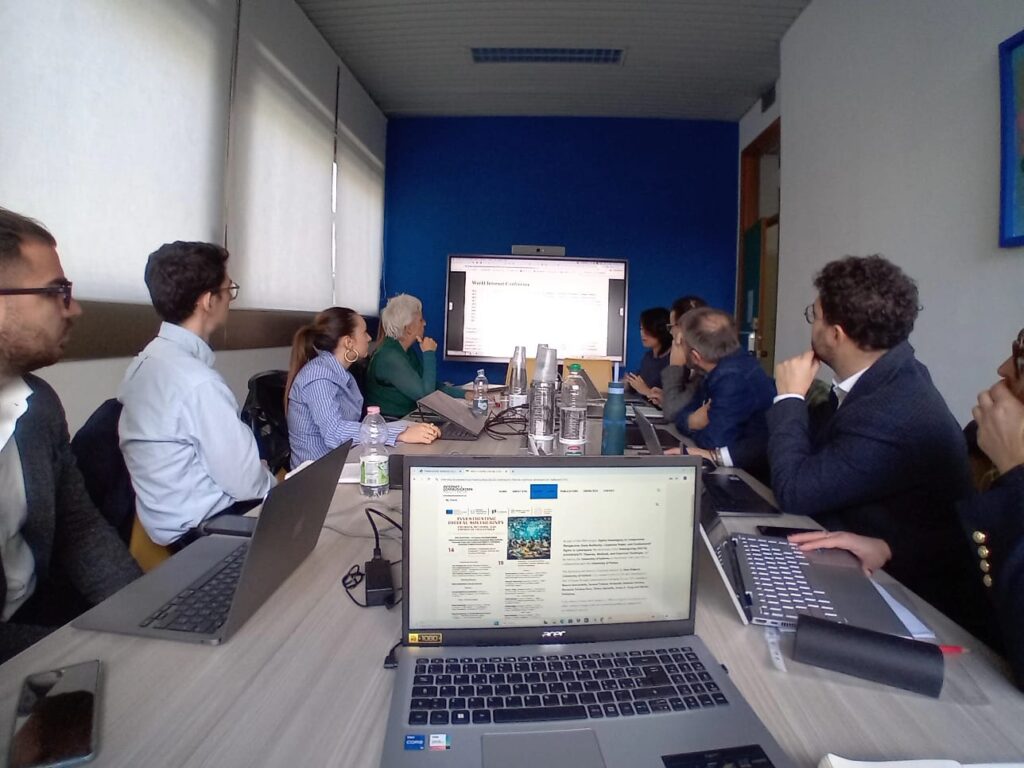
The event served as a vital platform for discussing how states and international bodies navigate the challenges posed by technological advancements, emphasizing the need for a balanced approach between state authority, corporate influence, and the protection of fundamental rights in the digital space.

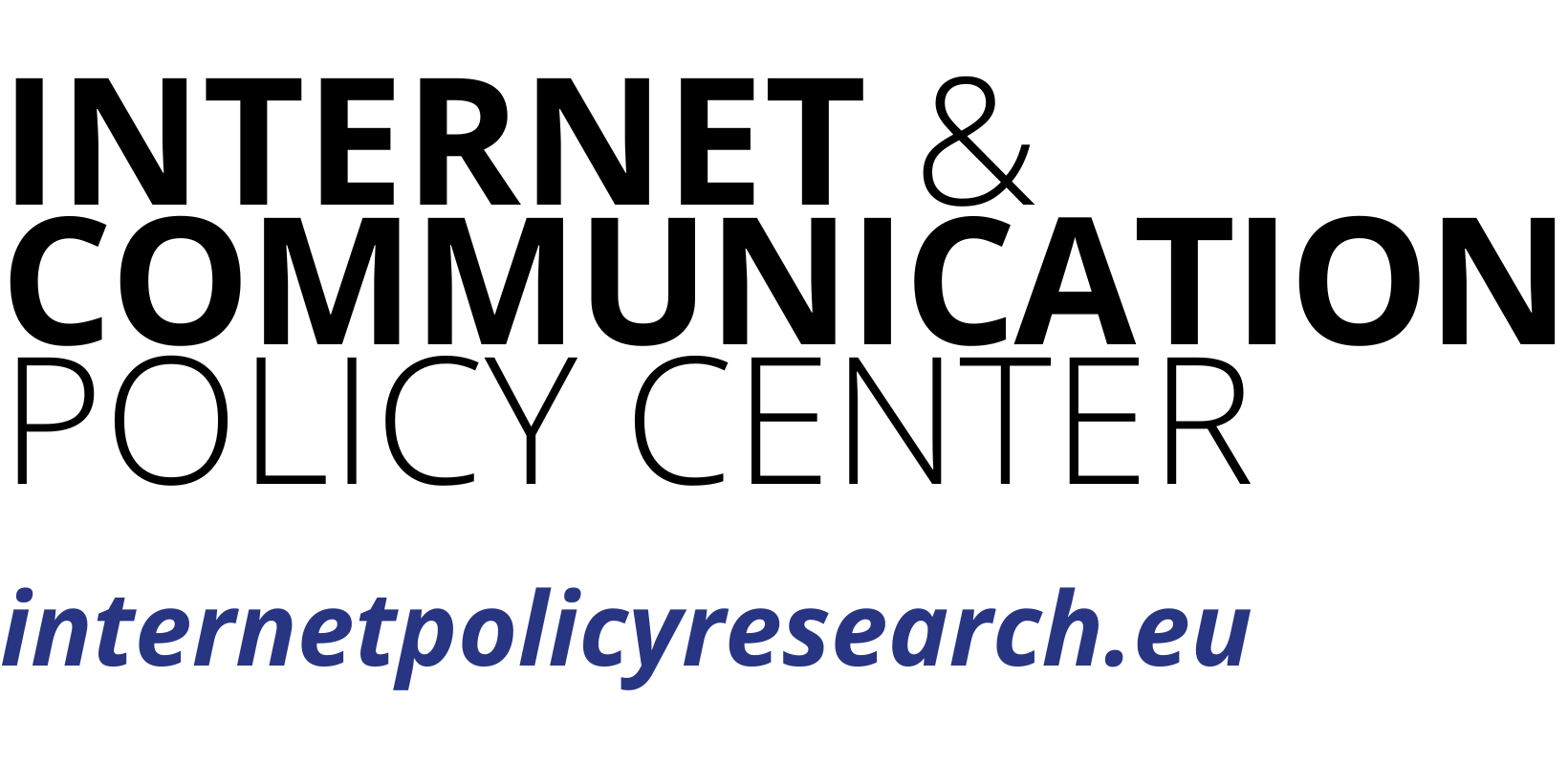

Comments are closed, but trackbacks and pingbacks are open.